Daniela Diaz Caro, MS, Anna Strang, MS, CGC, Jean Miriam Yasis, BS, Alicia Lewis, BA, Stephanie Soto, BS, and Stefania Alastre, MSPH, LCGC
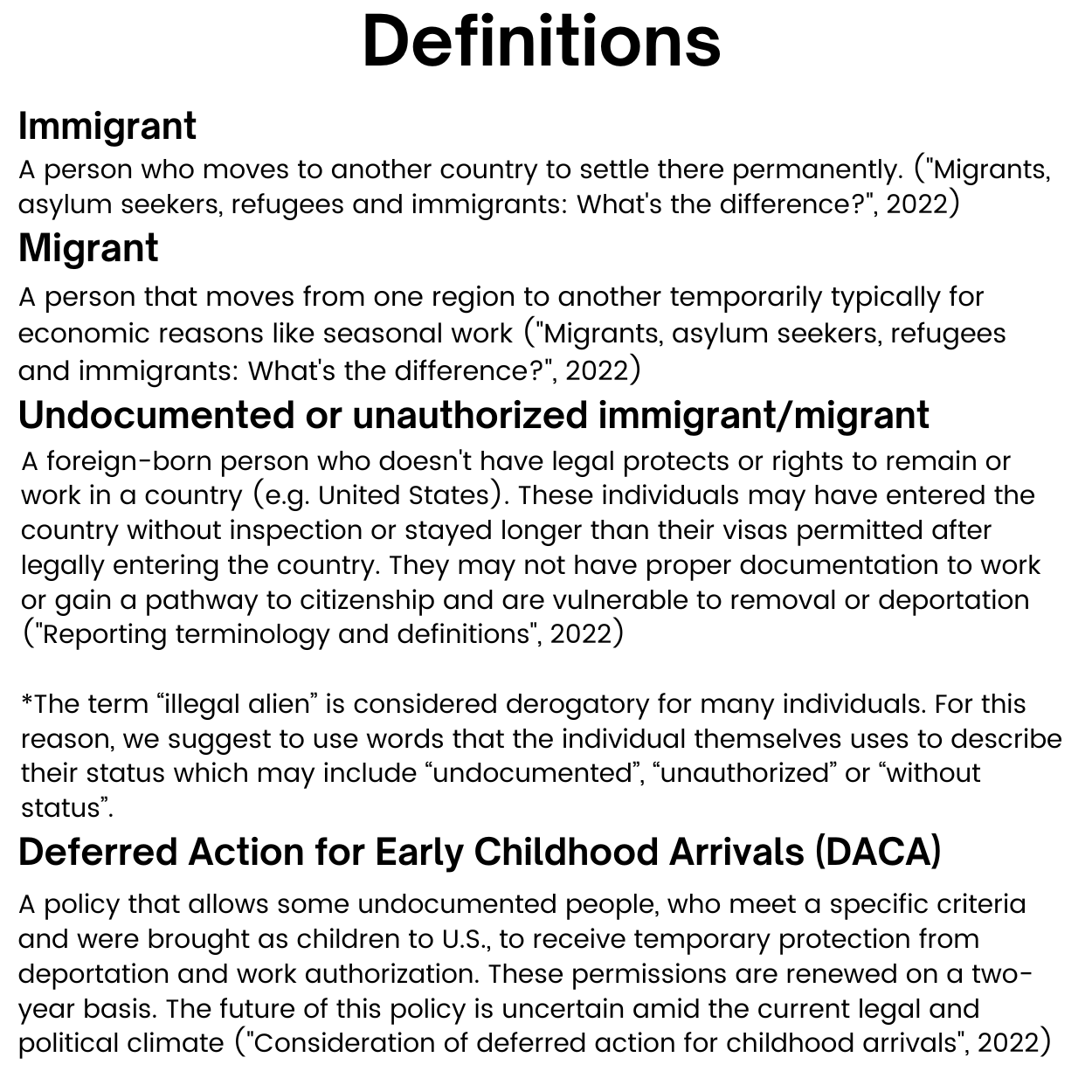 On October 28, 1987, the US Congress passed a proclamation of the first national Immigrants Day (Proclamation 5737, 1987). To commemorate this day, we are focusing this piece on a group of immigrants that are often stigmatized and condemned through stereotypes and fallacies, the undocumented and DACAmented immigrant community. As undocumented members of the genetic counseling community, we wanted to share the challenges we faced while pursuing a genetic counseling career. Our five perspectives may not represent the breadth of experience of 11 million undocumented immigrants in the U.S., but we hope that through sharing our experiences we can motivate our community to focus on making the genetic counseling profession more accessible (Esterline & Batalova, 2022).
On October 28, 1987, the US Congress passed a proclamation of the first national Immigrants Day (Proclamation 5737, 1987). To commemorate this day, we are focusing this piece on a group of immigrants that are often stigmatized and condemned through stereotypes and fallacies, the undocumented and DACAmented immigrant community. As undocumented members of the genetic counseling community, we wanted to share the challenges we faced while pursuing a genetic counseling career. Our five perspectives may not represent the breadth of experience of 11 million undocumented immigrants in the U.S., but we hope that through sharing our experiences we can motivate our community to focus on making the genetic counseling profession more accessible (Esterline & Batalova, 2022).
Understanding the Barriers to Entry in our Profession for Undocumented Prospective Students
For many immigrants in the U.S., a graduate education is the only path towards professional growth; a chance to create a promising future for us and our families. However, numerous barriers to entry can prevent undocumented students from reaching that goal.
In genetic counseling, some of the most prominent challenges undocumented students face which prevent us from attaining a graduate education include financial obligations, oppressive state educational policies, limited access to opportunities meant to fulfill application requirements, and lack of guidance for undocumented applicants. Additionally, we have had to cope with uncertainty and shame surrounding our undocumented status which discourages us from sharing with friends and colleagues the hardships and fear we experience. Throughout the graduate program application process, we often feel vulnerable and unsure of how to productively disclose our immigration status. Feeling unable to openly share our circumstances with peers can make our journey seem incredibly isolating. To combat this, we have found that building a community of undocumented students has helped us feel less vulnerable and encouraged us to be transparent about our statuses. As we further develop this community, we have created a guide for undocumented students as they navigate entrance into the field. Guide for prospective undocu/DACAmented genetic counseling students.
Building Institutional Support for our Undocumented Genetic Counseling Students
Undocumented graduate students provide a rich and unique source of lived experience at academic institutions. This can enhance their peers’, colleagues’, and supervisors’ understanding of and compassion for the broader undocumented community (Whitla et al., 2033). As a group, undocumented students are self-reliant, compassionate, and possess the qualities necessary to be successful genetic counselors.
Yet unlike their resident peers, undocumented students face unique challenges when pursuing graduate education. These may include confronting difficult emotions associated with the precarious regulations impacting our immigration status, the burden of acting as a community representative, lack of access to healthcare, limited financial resources (e.g., academic loans/aid) and an ill-defined career trajectory (i.e., no roadmap to practicing genetic counseling while undocumented).
To navigate these challenges without guidance is difficult. Because of this, we rely on the support of those in institutional leadership positions. We are thankful for those who have listened, have provided unconditional positive regard, have elevated our voices, and have helped us see a future for ourselves that we may not have imagined otherwise. However, we acknowledge that this support is not available at every institution. For that reason, we have written recommendations with solutions that can be implemented within graduate programs to best support undocumented genetic counseling students.
Guidance for genetic counselors that work with undo/DACAmented students
Enabling and Sustaining Undocumented Genetic Counseling Practitioners
Unsurprisingly, obstacles for undocumented genetic counselors persist beyond our graduate training. A notable barrier to practicing genetic counseling while undocumented is the personal identification requirement for our exam certification and licensure registration. Although DACA recipients can fulfill proper identification requirements, many undocumented individuals are not eligible for DACA and thus do not have appropriate ID preventing them from meeting these registration requirements. This of course negatively impacts their job prospects. Furthermore, unlike other international applicants, undocumented genetic counselors cannot apply for employment visa sponsorship through their employer. However, there are other work options, such as independent contracting, that remain largely unknown to many in our field. These hurdles are a harsh reality for undocumented genetic counselors hoping to contribute to our field and are key motivators driving us to give back to our communities and advance our careers in the present, because our futures are in no way guaranteed.
We cannot do the work of addressing these issues alone. As such, we hope that this article will spur action in our field to help secure the futures of all genetic counselors. Visit www.undocugc.com to learn more ways to support the undocumented genetic counseling community!
References
Consideration of deferred action for childhood arrivals (DACA). USCIS. (2022, October 7).
Retrieved October 10, 2022, from https://www.uscis.gov/DACA
Esterline, J. B.C., & Batalova, J. (2022). Frequently requested statistics on immigrants and
immigration in the United States. Migration Policy. migrationpolicy.org/article/ frequently-requested-statistics-immigrants-and-immigration-unitedstates#:~:text= More %20than%2044.9%20million%20immigrants,of%2014.8%20percent%20in%201890.
Migrants, asylum seekers, refugees and immigrants: What's the difference? The IRC. (n.d.).
Retrieved October 10, 2022, from https://www.rescue.org/article/migrants-asylum
-seekers-refugees-and-immigrants-whats-difference
Proclamation 5732 - National Immigrants Day. (1987). Ronald Reagan Library.
https://www.reaganlibrary.gov/archives/speech/proclamation-5732-national-immigrants-
day-1987.
Reporting terminology and definitions. Reporting Terminology and Definitions | Homeland
Security. (n.d.). Retrieved October 10, 2022, from
https://www.dhs.gov/immigration-statistics/reporting-terminology-definitions
Whitla, D. K., Orfield, G., Silen, W., Teperow, C., Howard, C., & Reede, J. (2003).
Educational benefits of diversity in medical school: a survey of students. Academic
medicine: journal of the Association of American Medical Colleges, 78(5), 460–466.
https://doi.org/10.1097/00001888-200305000-00007.
Authors
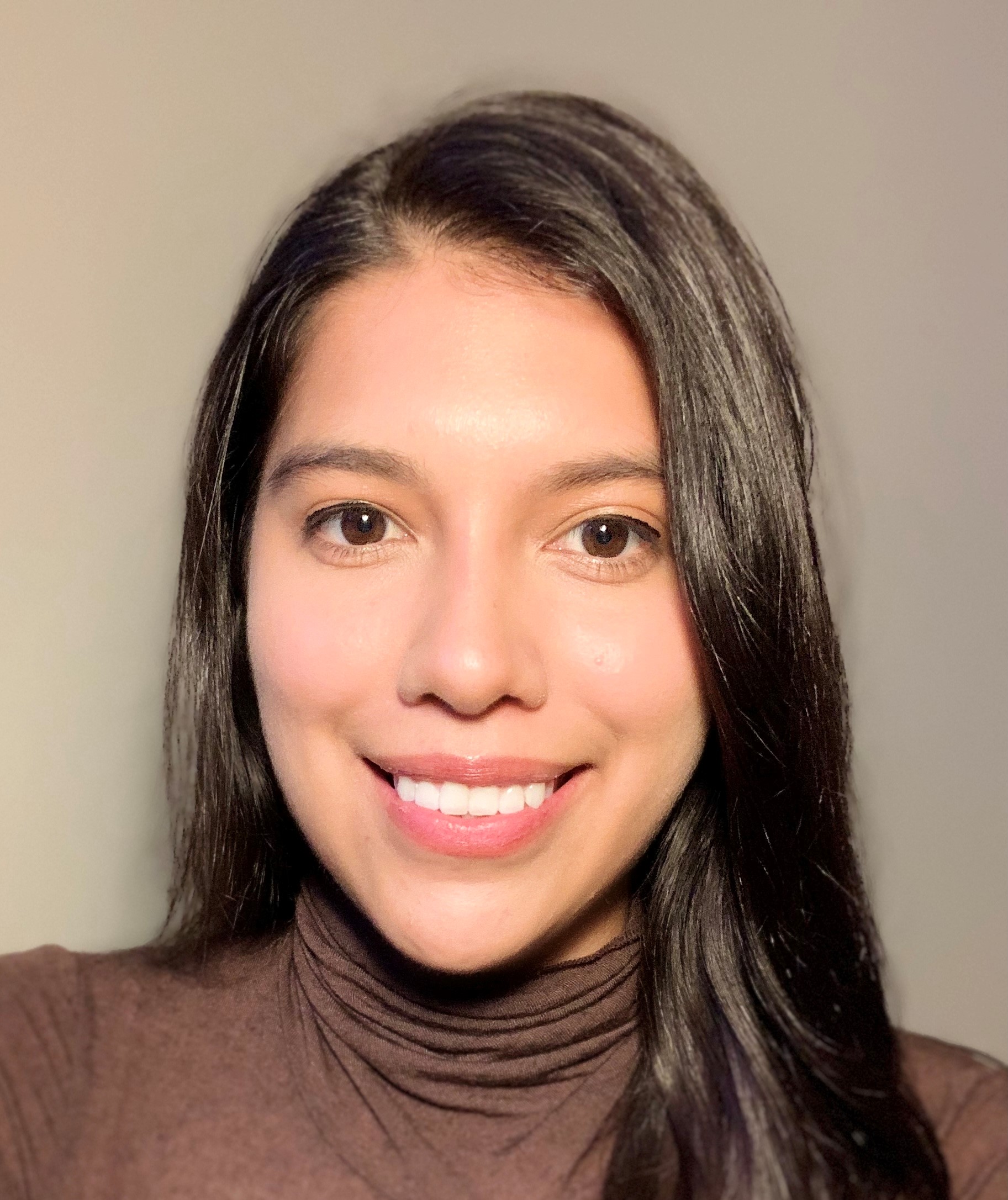 |
DANIELA DIAZ CARO, MS (SHE/HER) is a bilingual research genetic counselor at Columbia University Irving Medical Center. She is a previous DACA recipient and has an interest in working to expand access to genetic counseling services in Latin America.
LinkedIn Twitter
|
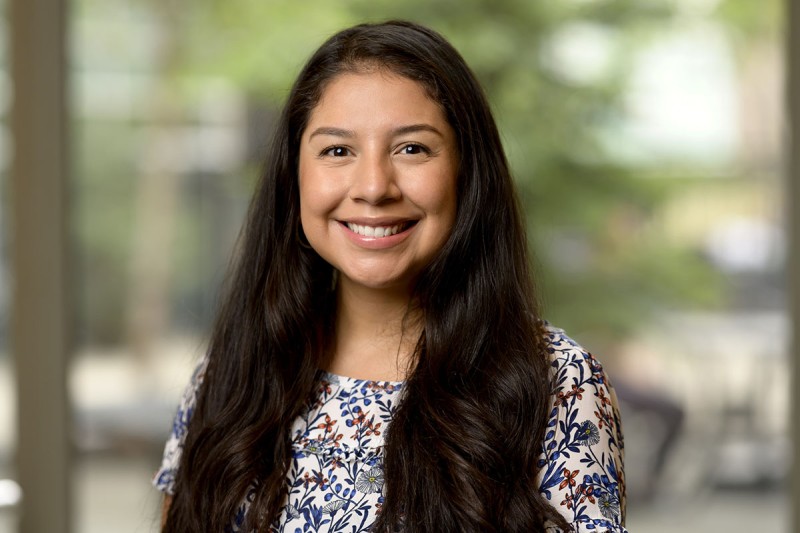 |
ANNA STRANG, MS, CGC (SHE/HER) is a first-generation immigrant and genetic counselor at Memorial Sloan Kettering Cancer. Her special interests include research in accessibility of genomic services to diverse and underserved populations.
|
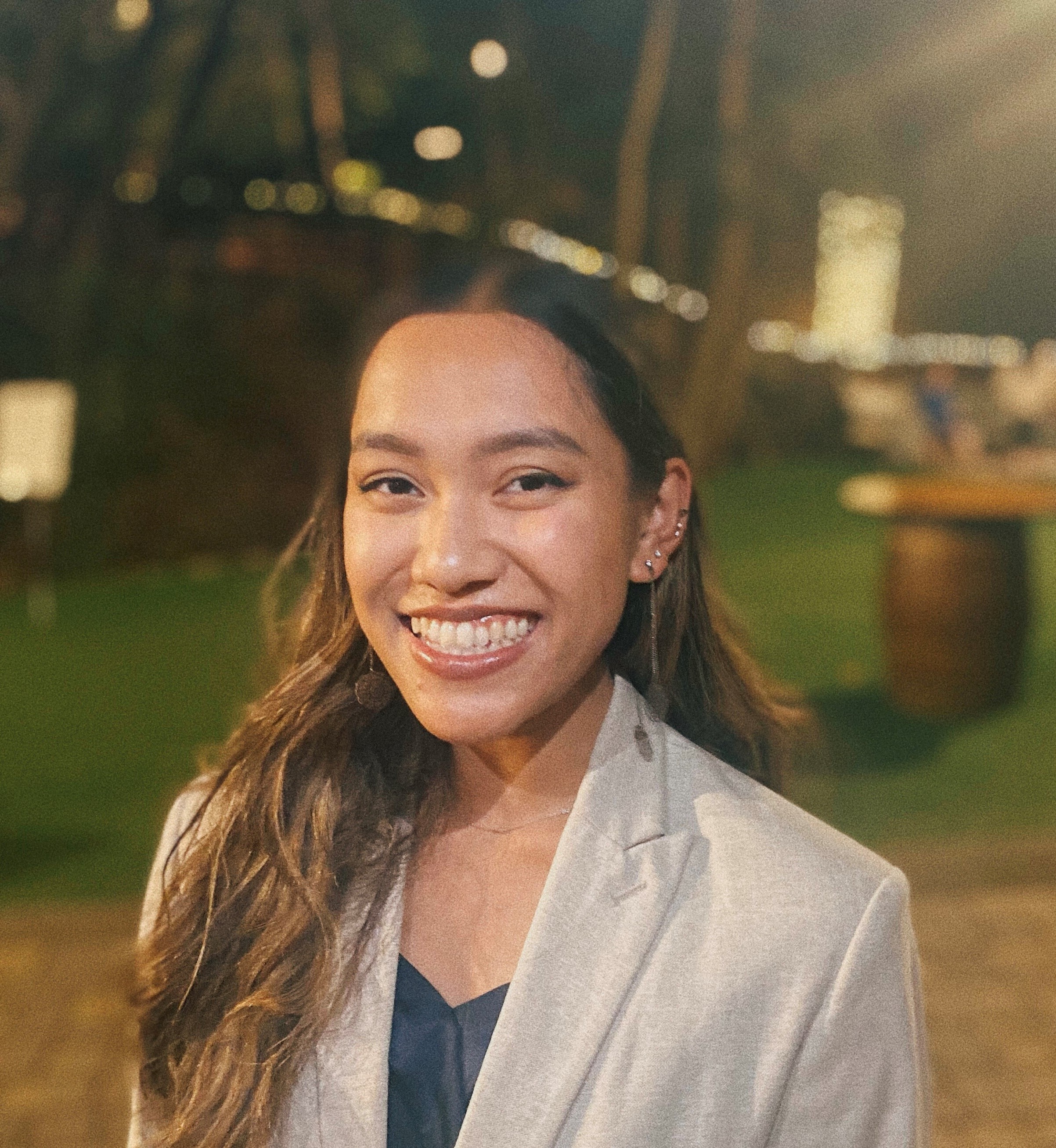 |
JEAN MIRIAM YASIS, BS (SHE/HER) is a prospective genetic counseling student and genetic counseling assistant at University of CA, San Francisco. She is a current DACA recipient, and she contributes towards community engagement to expand the reach of genetics for minority groups.
LinkedIn
|
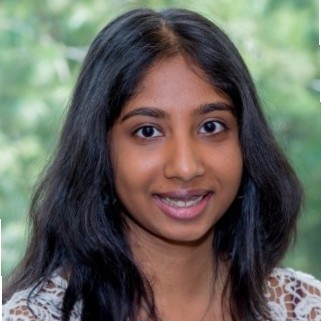 |
ALICIA LEWIS, BA (SHE/HER) is a prospective genetic counseling student, current Master of Health Administration Student and Senior Clinical Research Coordinator at Columbia University Medical Center.
LinkedIn
|
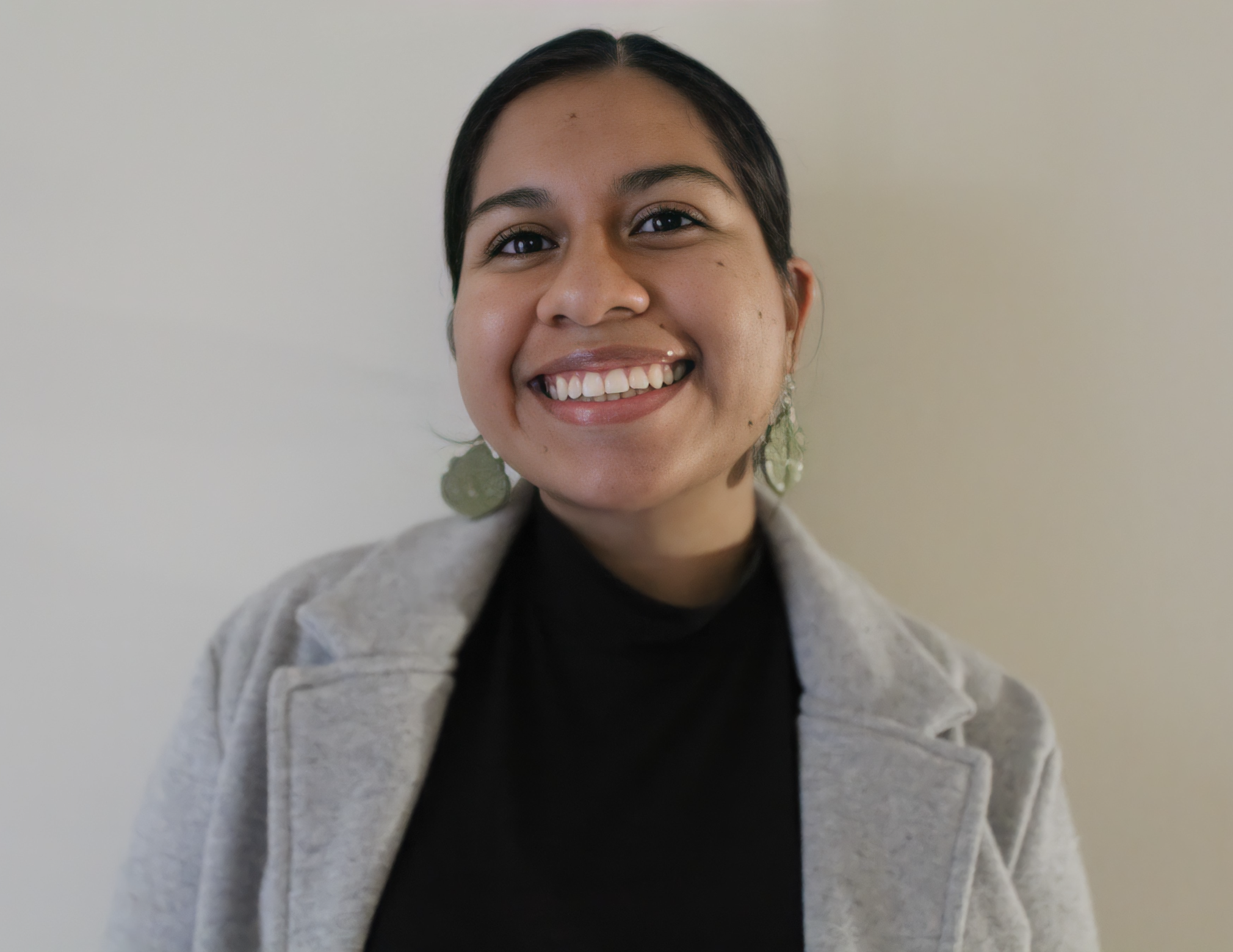 |
STEPHANIE SOTO, BS (SHE/HER) is a first-year genetic counseling student at the University of Maryland, Baltimore. She aims to understand how environmental injustices can contribute to disparities in health status across populations and increase access to genetic counseling resources for underrepresented communities.
|
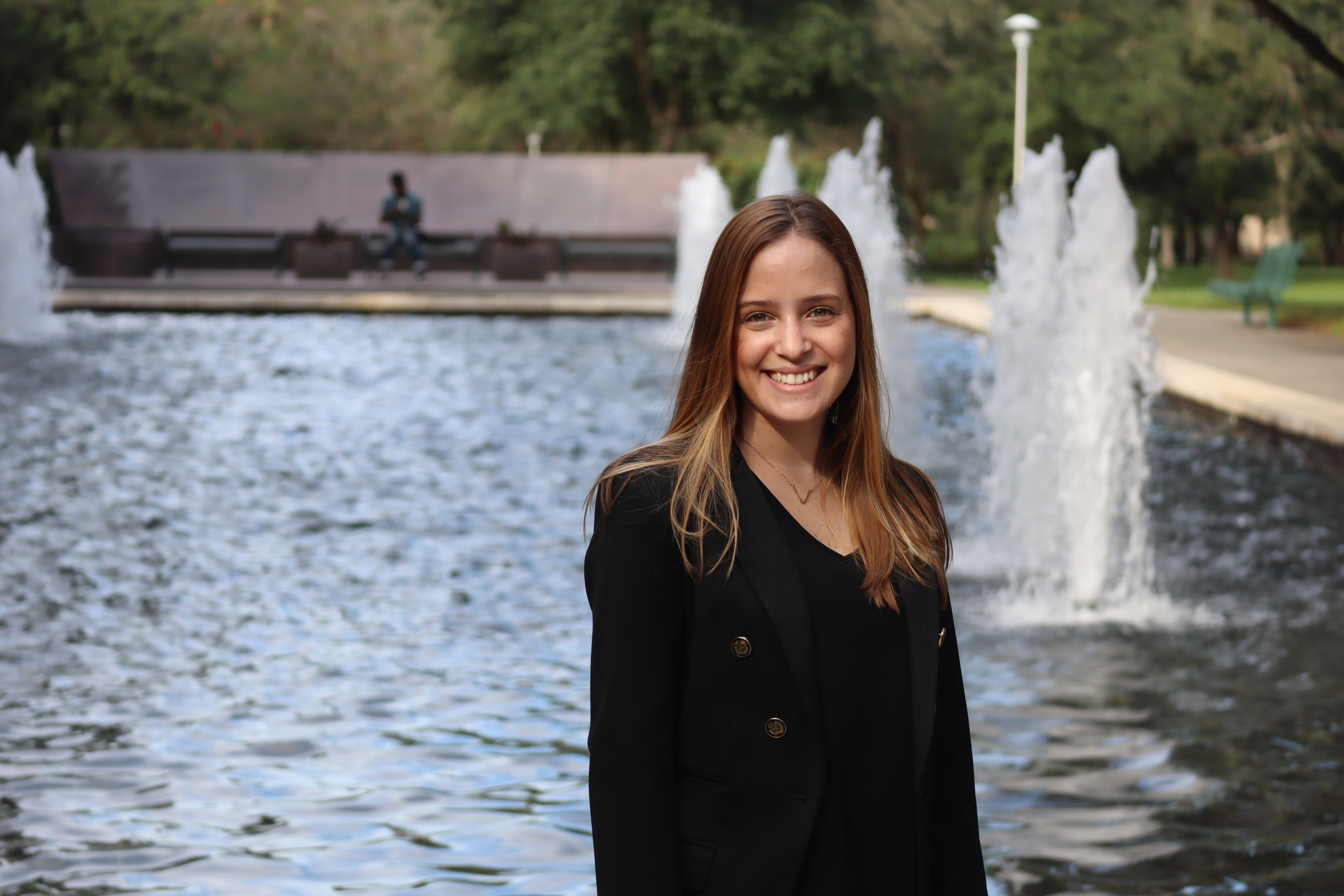 |
STEFANIA ALASTRE, MSPH, LCGC (SHE/HER) is a bilingual genetic counselor at Moffitt Cancer Center. She is a previous DACA recipient and is particularly interested in improving access to genetic services for minority and underrepresented communities.
LinkedIn Twitter
|
Daniela Diaz Caro, MS, Anna Strang, MS, CGC, Jean Miriam Yasis, BS, Alicia Lewis, BA, Stephanie Soto, BS, and Stefania Alastre, MSPH, LCGC